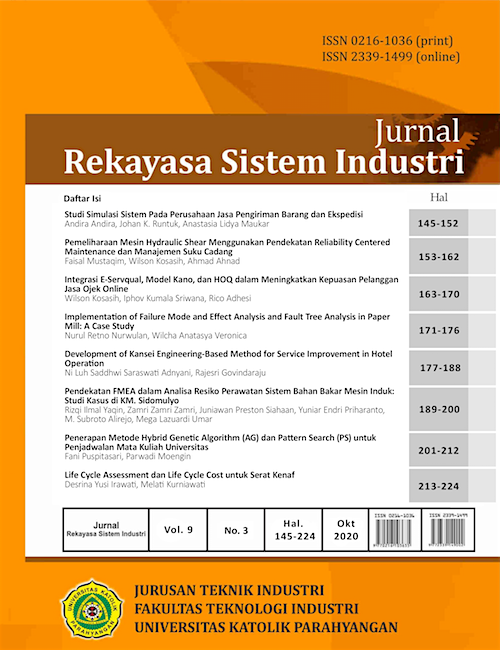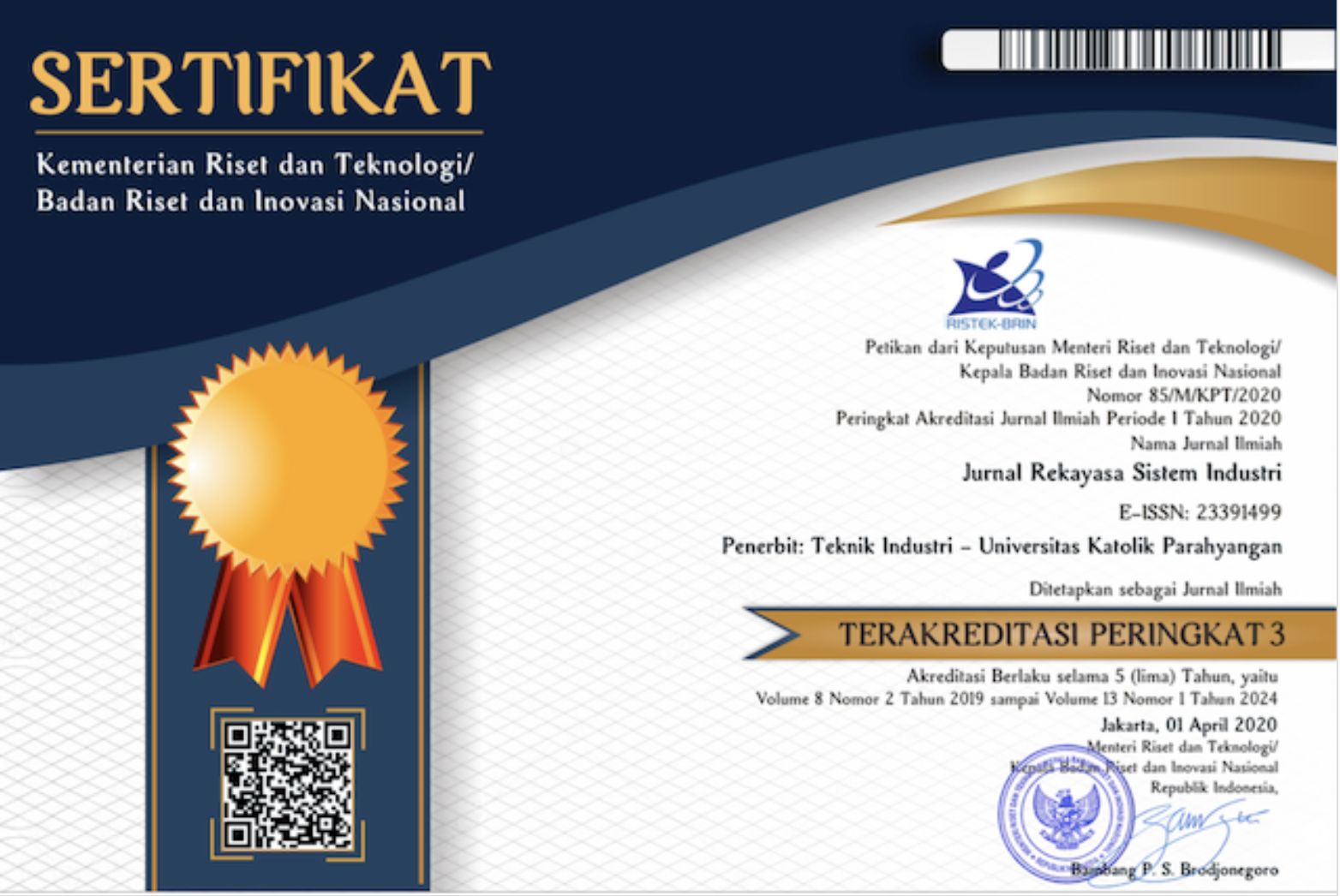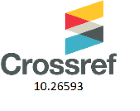Penerapan Metode Hybrid Genetic Algorithm (GA) dan Pattern Search (PS) untuk Penjadwalan Mata Kuliah Universitas
DOI:
https://doi.org/10.26593/jrsi.v9i3.4093.201-212Abstrak
The problem of university course scheduling is a complicated job to do because of the many constraints that must be considered, such as the number of courses, the number of rooms available, the number of students, lecturer preferences, and time slots. The more courses that will be scheduled, the scheduling problem becomes more complex to solve. Therefore, it is necessary to set an automatic course schedule based on optimization method. The aim of this research is to gain an optimal solution in the form of schedule in order to decrease the number of clashed courses, optimize room utilization and consider the preferences of lecturer-course. In this research, a hybridization method of Genetic Algorithm (GA) and Pattern Search (PS) is investigated for solving university course scheduling problems. The main algorithm is GA to find the global optimum solution, while the PS algorithm is used to find the local optimum solution that is difficult to obtain by the GA method. The simulation results with 93 courses show that the Hybrid GA-PS method works better than does the GA method without hybrid, as evidenced by the better fitness value of the hybrid GA-PS method which is -3528.62 and 99.24% of the solutions achieved. While the GA method without hybrid is only able to reach a solution of around 65% and has an average fitness value of -3100.76.
Referensi
Anamisa, D. R., Djunaidy, A. (2014). Penyelesaian Penjadwalan Matakuliah Menggunakan Hibridisasi Algoritma Genetika dan Algoritma Semut. Jurnal Ilmiah Teknologi Informasi Volume 12, Nomor 1, 15 – 20.
Balcilar, M. (2020). TimeTabling Genetic Algorithm, [Online], Diakses dari https://www.github.com/muhammetbalcilar/TimeTabling-GeneticAlgorithm, [2020, Mei]
Basak, R., Sanyal, A., Kumar, S., & Goswami, R. (2013). Comparative View of Genetic Algoithm and Pattern Search for Global Optimization. International Journal Of Engineering And Science Vol.3,PP 09-12.
Carter, M & Laporte, G. (1996). Recent developments in practical examination timetabling. Proceedings of the 1st International Conference on the Practice and Theory of Automated Timetabling, Lecture Notes in Computer Science 1153, pp. 3–21.
Erben, R.W., & Kepler, J. (1995). A genetic Algorithm Solving a Weekly Course Timetabling Problem. Proc. Of the First Int. Conf. on the Practice and Theory of Automated Timetabling (ICPTAT), pp. 21-32, Napier University, Edinburgh.
Gen, M & Cheng, R. (1997). Genetic Algorithm and Engineering Design. New York : John Wiley & Sons, Inc.
Jat, S. N. (2012). Genetic Algorithm for University Course Timetabling Problems. Thesis. Department of Computer Science University of Leicester.
Priambodo, M.A., Nhita, F., & Aditsania, A. (2016). Penjadwalan Mata Kuliah Menggunakan Metode Hybrid Algoritma Genetika dan Algoritma Koloni Semut. E-Proceeding of Engineering : Vol.3, No.2 , Page 3711.
Saini, N. (2017). Review of Selection Methods in Genetic Algorithms. International Journal Of Engineering And Computer Science ISSN:2319-7242 Volume 6 Issue 12.
Sivanandam, S.N., Deepa ,S.N. (2008). Introduction to Genetic Algorithms. Berlin: Springer-Verlag.
Wati, D. A. N., & Rochman, Y. A, (2013).Model Penjadwalan Matakuliah Secara Otomatis Berbasis Algoritma Particle Swarm Optimization (PSO). Jurnal Rekayasa Sistem Industri Vol. 2, No.1
Wen-jing, W. (2018). Improved Adaptive Genetic Algorithm for Course Scheduling in Colleges and Universities. International Journal of Emerging Technologies in Learning Vol. 13, No. 6.
Yudong, Z., Shuihua, W., Genlin, J., & Zhengchao, D. (2013). Genetic Pattern Search and Its Application to Brain Image Classification. Hindawi Publishing Corporation Mathematical Problems in Engineering Volume 2013, Article ID 580876.













